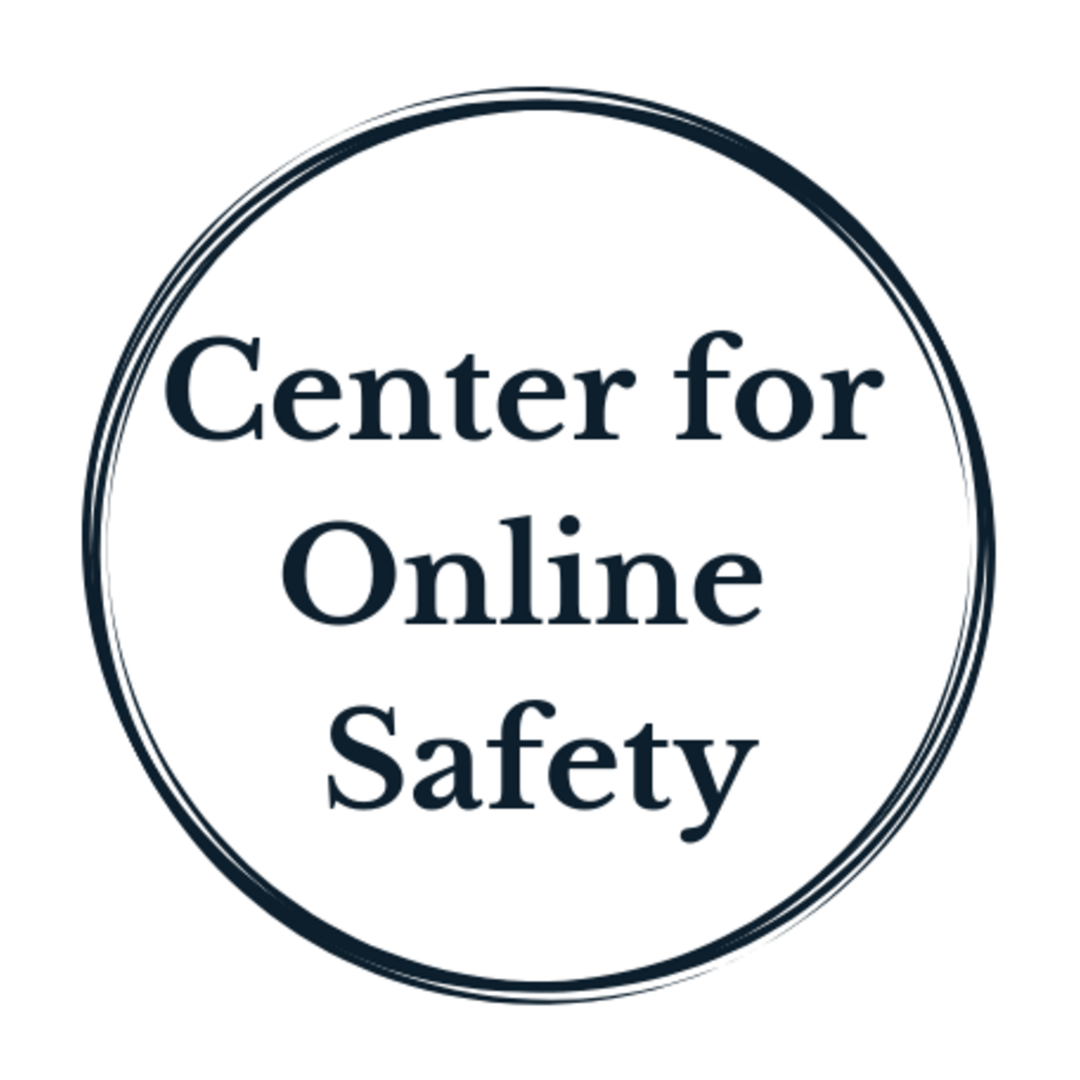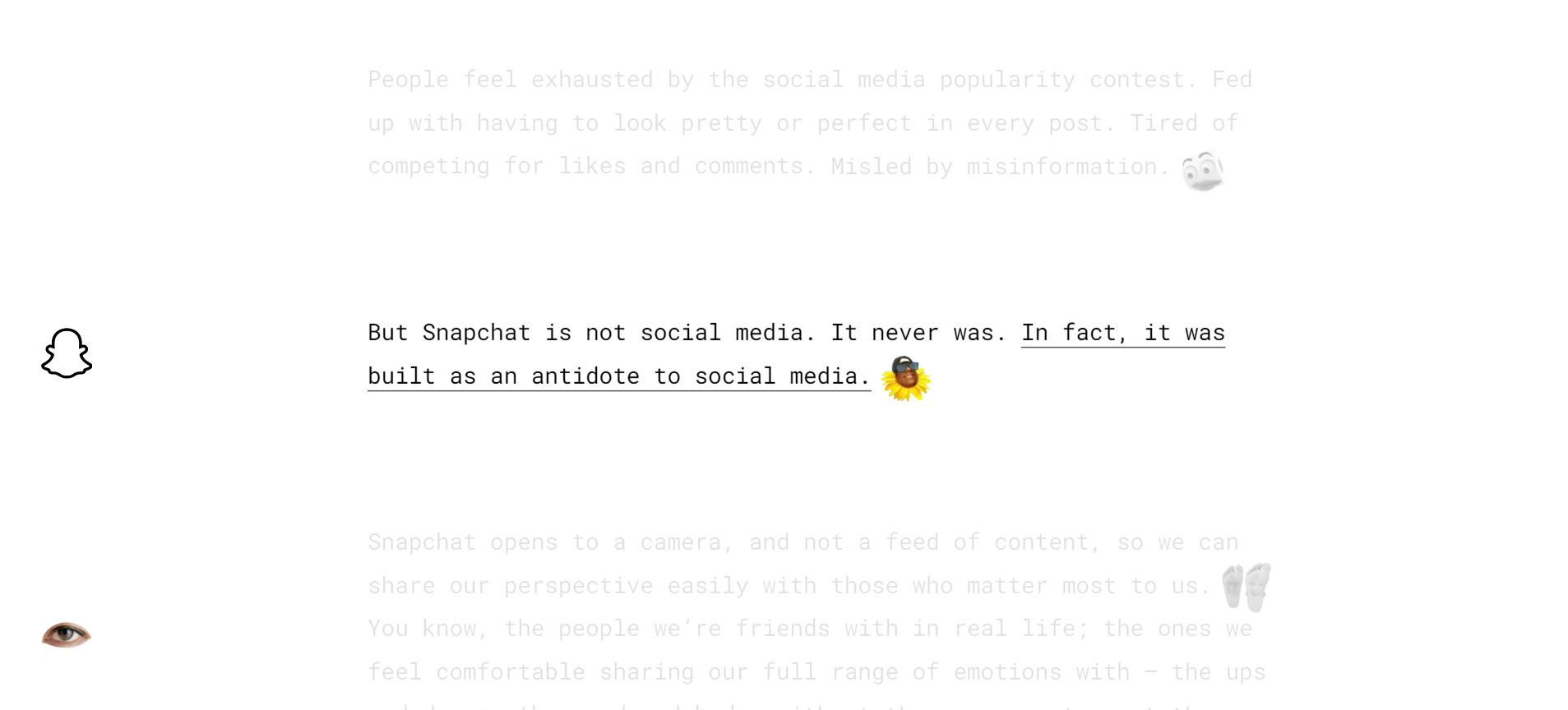Snapchat IS social media
Last week the big news was the Senate Judiciary hearing on how kids are exposed to social media harms regularly. Part of the good news was that Snapchat broke away from other social media companies to support protecting kids online through KOSA (the Kids Online Safety Act).
It seemed like a good start...
But this week we learn that Snapchat is trying to distance itself from the term "social media", since social media platforms are under Senate's scrutiny for harming kids.
In a bizarre move, Snapchat has declared they are not "social media" anymore with the audacious "Less social media. More Snapchat" campaign. They're positioning themselves as "the good guys"... despite having an epidemic of drug dealers on their platform and law enforcement's vote on being the worst social media platform to try to investigate crimes on.
This is the Snapchat campaign trying to convince us they’re different and shouldn’t be called “social media”.
This is crazy talk - of course Snapchat IS social media
Chatting with my 17 year old about this, he said, "Snapchat IS social media. I can talk with my friends, watch content and post on my story." (Not to mention, Snapchat delivers content to you as a recommendation (Snapchat Discover), pays influencers (Spotlight), incentivizes daily interactions (Streaks) and encourages teens to spy on each other by sharing their location (Snap Maps).)
Yeah.
This is the opposite of Big Tech accountability.
Just because you say you're not social media anymore doesn't mean you're not part of the problem!
“Drug dealers can hide behind the social media platforms in a very secure and discreet way and push their drugs out to our younger generation, and almost do it with the immunity of no enforcement whatsoever,” said former FBI agent Stuart Kaplan.
Kaplan explained that Snapchat stands out from other social media platforms because its messages are designed to disappear.
Look for Snapchat's “we’re not social media” campaign during the Super Bowl this weekend
Snapchat aired their campaign during the Grammys last week and plans to air it again this weekend during the Super Bowl. They are pushing Snapchat as a “safer and more authentic alternative to toxic social media.”
What???
Amy Neville, activist and Director of the Alexander Neville Foundation, is horrified by this lack of accountability from Snapchat. She’s devoting her life to spotlighting the harms on Snapchat after losing her son to a drug dealer on that platform. The Alexander Neville Foundation and the National Crime Prevention Council created this counter campaign “More Snap. More Problems”, highlighting some of the children who have lost their lives due to counterfeit pills containing fentanyl purchased on Snapchat.
Snapchat is a haven for drug dealers
In 2022 the National Crime Prevention Council (NCPC) called on the Justice Department investigate social media platforms such as Snapchat, which are allegedly being used to sell drugs like fentanyl to kids.
Here’s what Paul DelPonte, the NCPC Executive Director, said about the fentanyl crisis:
"Social media platforms bear some responsibility for these deaths. Companies have failed to create safe online communities and are turning a blind eye to surveillance tools they routinely employ to collect personal information to stop drug dealers. Snap, Inc. is of particular concern."
He went on to say that Snapchat is a "digital open-air drug market" that allows dealers to advertise and distribute fake pills to tweens and teens who are unsuspecting and that they may be lured into obtaining dangerous and deadly drugs.
"The platform gives drug dealers the ability to hide behind encrypted technology and posts that disappear from public view within 24 hours or less," DelPonte said. "This is not protection of free speech. It is aiding and abetting of the worst kinds of criminal acts."
Read more about the NCPC here.
What do you think?
Will Snapchat get away with this repositioning, despite all the evidence that they’re part of the problem?

